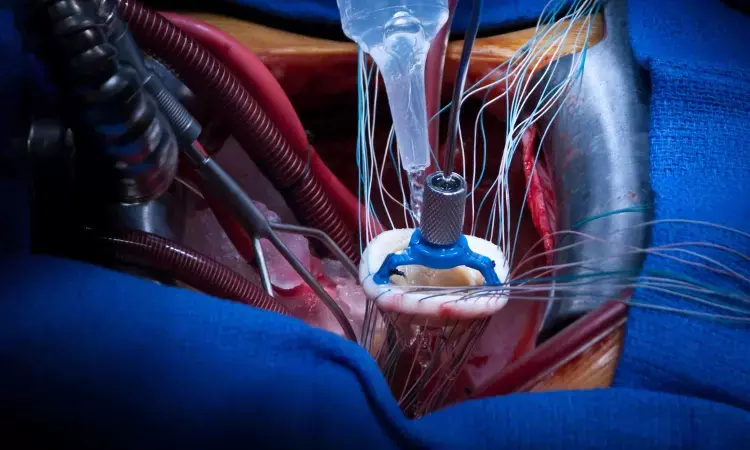- Home
- Medical news & Guidelines
- Anesthesiology
- Cardiology and CTVS
- Critical Care
- Dentistry
- Dermatology
- Diabetes and Endocrinology
- ENT
- Gastroenterology
- Medicine
- Nephrology
- Neurology
- Obstretics-Gynaecology
- Oncology
- Ophthalmology
- Orthopaedics
- Pediatrics-Neonatology
- Psychiatry
- Pulmonology
- Radiology
- Surgery
- Urology
- Laboratory Medicine
- Diet
- Nursing
- Paramedical
- Physiotherapy
- Health news
- Fact Check
- Bone Health Fact Check
- Brain Health Fact Check
- Cancer Related Fact Check
- Child Care Fact Check
- Dental and oral health fact check
- Diabetes and metabolic health fact check
- Diet and Nutrition Fact Check
- Eye and ENT Care Fact Check
- Fitness fact check
- Gut health fact check
- Heart health fact check
- Kidney health fact check
- Medical education fact check
- Men's health fact check
- Respiratory fact check
- Skin and hair care fact check
- Vaccine and Immunization fact check
- Women's health fact check
- AYUSH
- State News
- Andaman and Nicobar Islands
- Andhra Pradesh
- Arunachal Pradesh
- Assam
- Bihar
- Chandigarh
- Chattisgarh
- Dadra and Nagar Haveli
- Daman and Diu
- Delhi
- Goa
- Gujarat
- Haryana
- Himachal Pradesh
- Jammu & Kashmir
- Jharkhand
- Karnataka
- Kerala
- Ladakh
- Lakshadweep
- Madhya Pradesh
- Maharashtra
- Manipur
- Meghalaya
- Mizoram
- Nagaland
- Odisha
- Puducherry
- Punjab
- Rajasthan
- Sikkim
- Tamil Nadu
- Telangana
- Tripura
- Uttar Pradesh
- Uttrakhand
- West Bengal
- Medical Education
- Industry
FDA Approves Abbott's Tendyne TMVR System for Mitral Valve Disease

The US Food and Drug Administration has approved Abbott's Tendyne Transcatheter Mitral Valve Replacement (TMVR) system. It is indicated for patients with mitral valve disease caused by severe mitral annular calcification, offering a non-surgical alternative to open-heart procedures.
The complex nature of mitral valve disease and patients' specific needs and health conditions can pose challenges for surgical correction. For patients with severe MAC who are at high risk for open-heart surgery and whose mitral valve cannot be successfully repaired with the Abbott MitraClip™ device, Tendyne offers an alternative minimally invasive way to replace the valve that's leaky (mitral regurgitation) or narrowed (stenosis).
"Mitral annular calcification stiffens the structure of the mitral valve and can lead to mitral regurgitation or stenosis that disrupt the heart's ability to pump blood effectively. These conditions can have a significant impact on a patient's quality of life, causing symptoms such as chest pains, shortness of breath and dizziness," said Paul Sorajja, M.D., the Roger L. and Lynn C. Headrick Family Chair of the Valve Science Center for the Minneapolis Heart Institute Foundation and director of the Center for Valve and Structural Heart Disease for the Minneapolis Heart Institute at Abbott Northwestern Hospital. "Unfortunately, patients with MAC can be very difficult to operate on and many are considered too high risk for open-heart surgery due to multiple co-morbidities or other factors. Tendyne bridges a critical treatment gap for these patients and can help reduce the symptoms that can interfere with their lives."
The innovative and unique design of the Abbott Tendyne system and the valve's availability in multiple sizes allows it to adapt to a range of patient anatomies. The self-expanding valve is delivered through a small incision in the chest and then advanced into the heart to replace the mitral valve. The valve is fully repositionable and retrievable during implantation, allowing for the best possible outcome for people requiring a valve replacement.
"Tendyne is a much-needed addition to our comprehensive U.S. structural heart portfolio that offers less invasive treatment options for a range of heart diseases," said Sandra Lesenfants, senior vice president of Abbott's structural heart business. "This approval builds on our more than two decades of mitral valve leadership that includes developing first-of-their-kind devices that truly change – and save – people's lives."
For U.S. important safety information about Tendyne, visit https://abbo.tt/TendyneISI.
For U.S. important safety information about MitraClip, visit https://abbo.tt/MitraClipISI.
Dr Prem Aggarwal, (MD Medicine, DNB Medicine, DNB Cardiology) is a Cardiologist by profession and also the Co-founder and Chairman of Medical Dialogues. He focuses on news and perspectives about cardiology, and medicine related developments at Medical Dialogues. He can be reached out at drprem@medicaldialogues.in


